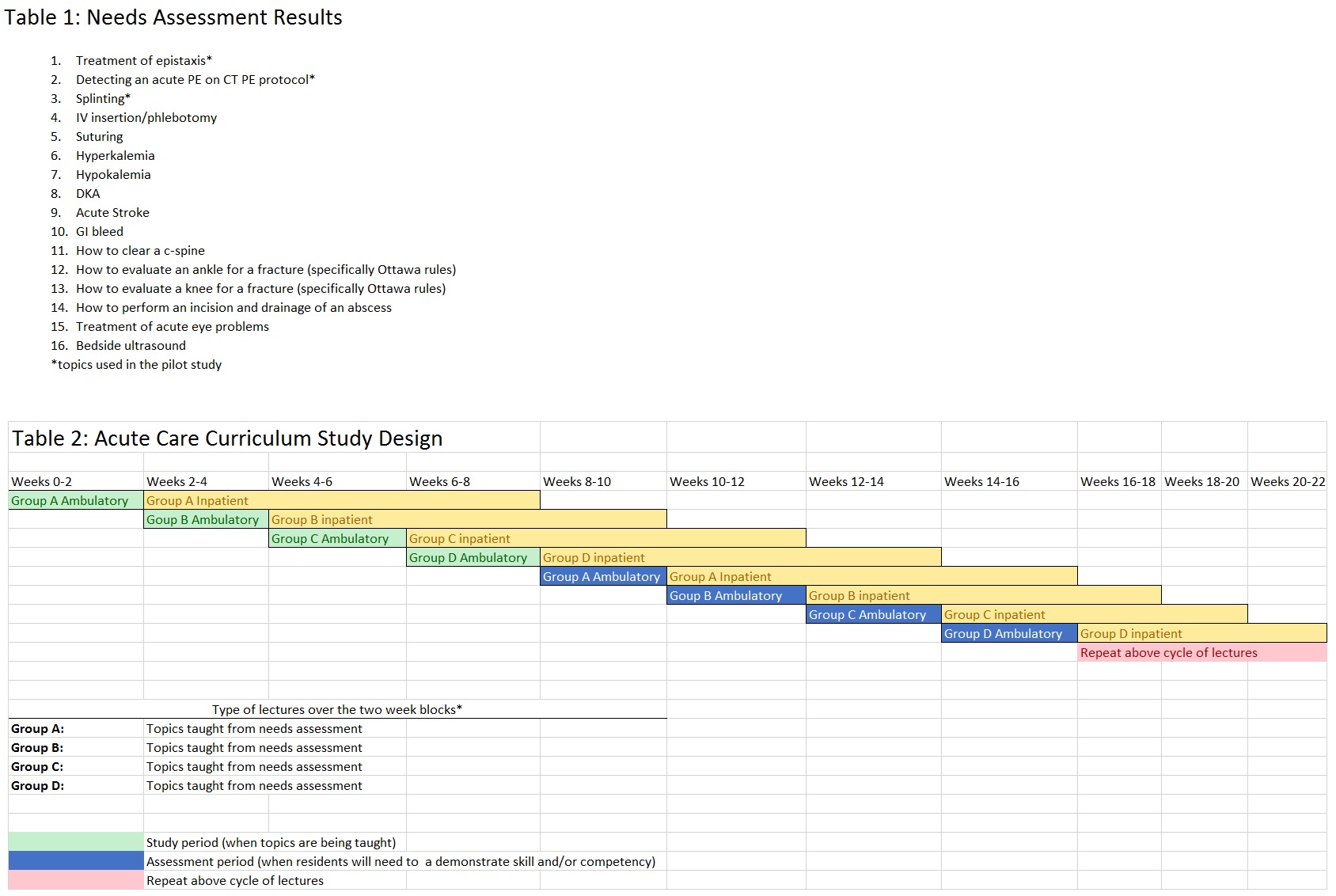Background:
The Accreditation Council for Graduate Medical Education (ACGME) realizes the importance of ambulatory medicine as an integral part of internal medicine (IM) training. Therefore, program requirements specify that at least one third of the training needs to be spent in ambulatory settings. ACGME requires residents to spend between 4 to 8 weeks in emergency medicine (EM). During that experience, residents are expected to have first-contact responsibility for emergency patients with no preceding physician triage. Recognition and initial management skills can help residents handle unexpected emergencies in 2 potential settings: (1) during their EM rotation and (2) during their nightfloat rotation when supervision is limited.
The IM program at our institution requires residents to rotate for 2 weeks at the Emergency Department (ED) annually through the three years of residency. Furthermore, residents spend 2-2.5 months a year in ambulatory blocks in the second and third years, which contain several ED shifts.
With the frequent rotation of residents in the ED, a voluntary curriculum was created to enhance the educational experience of residents and to address basic acute care skills for internists. The model was intended to transmit practical training skills that can be used in critical situations. The sessions were formatted as small interactive workshops lasting 30 minutes.
Purpose:
The purpose of the study was to determine the effectiveness of these workshops for teaching acute care skills to IM residents
Description:
Current IM residents on their ambulatory blocks have formal lectures consolidated on Friday morning for 4 hours, creating an opportunity for 8am workshops Monday through Thursday. A pilot study conducted over 1.5 months was undertaken to determine if IM residents would participate in this voluntary curriculum. As their responses were positive, a formal needs assessment surveyed the chief residents and some of the IM program leadership to determine the most beneficial topics (Table 1). The acute care curriculum was subsequently created (Table 2). The curriculum is currently in process and will be evaluated by validated evaluation tools.
Conclusions:
The curriculum is currently underway with data collection and analysis in progress. However, the pilot study was very well received by the residents
